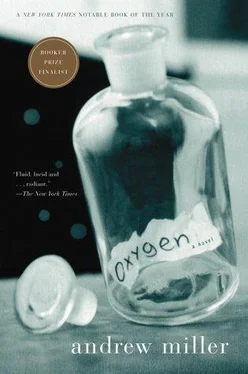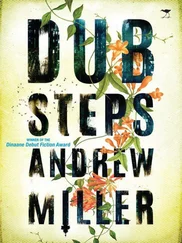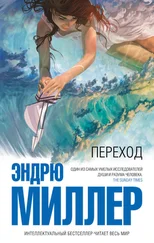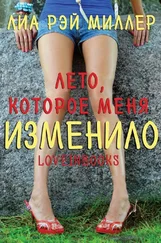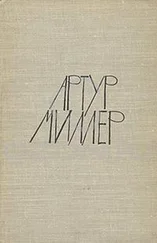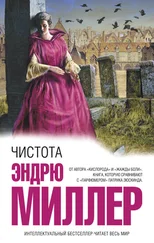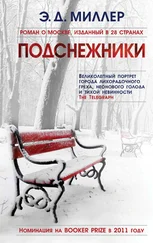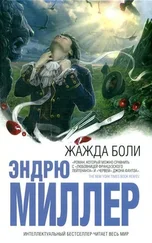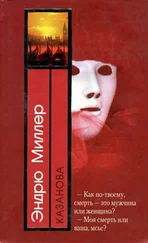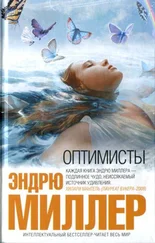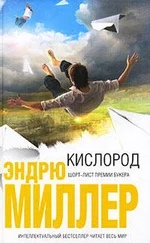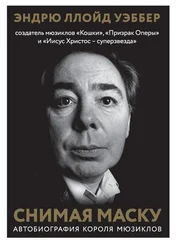‘They could be anything,’ said Larry. He wanted to touch them.
‘Could be.’ Ranch closed the box and put it back in the cabinet. ‘Maybe I should throw them out before some chick takes one for period pain. The thing is, I like the idea of them. You know what I mean?’
Larry nodded. He knew.
‘Hey, you’ll be great,’ said Ranch, putting an arm around Larry’s shoulders and gently leading him back into the bedroom. ‘You’ll be beautiful.’
When László was a boy, going to bed had been a matter of swilling his mouth out, stripping down to vest and shorts and jumping as quickly as he could between the sheets beside his brother János. Sleep would come to them in the music of the drains from the upstairs apartments and the rattling of the trams on Szechenyi Rakpart. Now, his elaborate couché was an ever expanding chore that required a good fifty minutes of light physical labour in the bathroom, and which began with what the doctors liked to call ‘moving the bowels’. For quarter of an hour he would sit on the wooden O reading crinkled copies of Void magazine, or frowning at Marcello Mastroianni smoking on the old film poster for La Dolce Vita on the opposite wall, and then inspect the resulting mess (wondering sometimes if there were not millions of men at that moment peering anxiously or even with pride at their own shit) for any ominous signs of inner bleeding. His father had died from cancer of the colon.
Satisfied that his insides were functioning as they should, he would move on to the basin and the large bevelled mirror to start work on his teeth. It was only in his forties that he had begun to put his crooked, tobacco-stained teeth in order, entering, in a fit of vanity or self-consciousness, the painful and overpriced world of crowns and laminate veneers, extractions, root work and novocaine. Between 1978 and 1981 he had spent entire afternoons in the jet-fighter seat of Monsieur Charass, whose masked and looming face had become one of the permanent props of László’s dream world. When László left the surgery for the last time he had possessed a set of teeth, some his own, many not, that seemed to have been stolen from someone much younger, and which he secretly thought of as ‘American teeth’, still having old-fashioned ideas from his boyhood about American vigour and dollar-beauty.
His face presented a more stubborn problem. There was no Charass to take away the crimps and sunbursts of his skin, but Kurt (that marvellous boy!) had introduced him to the world of anti-ageing creams, and László had immediately become a devotee, even something of an addict. These small expensive pots peddled by elegant women in the Gallerie Lafayette, women whom it seemed were required to wear on their faces a sample of every cosmetic they sold, contained such dreamily improbable ingredients as jojoba oil, pro-phosphor, concentrated line-lift serum. His latest buy – he had been drawn to the counter by a picture of a girl with a complexion of humid alabaster, and a poster exhorting him, somewhat drunkenly he thought, to ‘Forget Time!’ – promised to deliver pure oxygen molecules directly to the cells of his skin via the Asymmetric Oxygen Carrier System.
In his first enthusiasm, these creams had seemed to László one of the western world’s most seductive achievements. He had even claimed, in a not entirely flippant essay for Le Monde, that it was precisely such a product, fruit of a playful science, that had made communism untenable and helped bring about the collapse of its empire. Who could care about collective agriculture, presidiums, space labs or Five Year Plans when the face of everyone over thirty looked so withered and unloved, while those on the other side of the curtain could rehydrate and nourish their skins with luxurious creams? Wasn’t that what we feared about time, about death, its assault upon our vanity, the grinding out of whatever measure of physical loveliness we had enjoyed? How much more effective it had been, this creative narcissism of the West, than all the Minutemen missiles or the corruption and stupidity of the Party stooges. True, the lotions, teased into his skin with gently circling fingertips, had not made him look any younger, but he was convinced they had retarded the process of decay, protecting him a little from gravity and toxic air, from the effects of too much smiling or frowning, even perhaps from that scourge of all faces: guilt.
The petit four of this banquet of self-attention was a dab of Aqua di Parma, a perfume once used by both Audrey Hepburn and Cary Grant – quite reason enough for any lesser mortal to indulge. The bottle had been given to him as a parting gift by Guilleme Bernadi, producer at the Teatro Argentina in Rome where they had put on Flicker in the spring of 1995, and the scent, with its tones of honey and sherbet, unfailingly reminded László of the night tour in Guilleme’s Spider soft-top, Beatles tapes on the cassette, warm Roman air, real southern air, blowing over their faces as they turned down streets so narrow and crowded with 2 a.m. revellers he had had the sensation of driving through the midst of an endlessly extended open-air restaurant.
He held up the bottle. It was still two-thirds full. Enough, at a dab a night, to last him into his dotage, when perhaps the middle-aged Kurt, portly and balding, would push him around the apartment in a wicker Bath chair, and all his past life would have become like the events of a single afternoon, in which much had been done, but little, nothing at all perhaps, achieved. His did not underestimate his work, his hard-won craftsmanship, the pleasure it gave, but increasingly it felt like something he did in order to avoid doing something else, a forty-year displacement activity, and he wondered, leaning into the mirror to watch himself think, what the true currency of human success might be. Certainly it had nothing to do with prizes, reviews, his photograph in a newspaper – it was extraordinary what little difference such things made. Neither was it a matter of figures, like the number of francs you had, or happy days, or friends at your funeral. And love?
Loving, you would not die of utter loneliness like a dog at night in a field. But love was too arbitrary. It was mere good fortune. A cloudburst. Any number of base and useless people were capable of it. Hitler had loved his Eva. Stalin, too, must have loved somebody once. No. We needed to be weighed more carefully than that. So what better than those sudden tests of worth and courage for which there was no preparation other than your entire preceding life? Those moments when you must step forward from a line of silent faces and declare yourself; say yes when the others say no; run back into the burning house without the least hesitation. Or just ask a question, like little Sandor at school on Ulloi Ut, who stood up from his desk and asked the teacher why it was necessary for certain pages in the history books to be glued together. In such moments you could fail beyond your wildest dreams. Or succeed, of course. There was that too.
He touched the precious drop of scent on to his neck, tied his robe and left the bathroom, shuffling in Moroccan slippers along the corridor to the bedroom. He grinned to himself, lugubriously, at the thought of the Bath chair. The twilight of a passionate dilettante! It was not much to look forward to.
In bed at last, in the warm lamplight, Kurt’s gentle sleep-breath the most peaceful sound in the world, László lay back on the pillows, arms behind his head, and tried again to remember the name of the English football captain. Billy? Could ‘Billy’ be a family name in England? Mr Billy? He had visited London four times, all theatre visits. He found the city somewhat troubling. Eerie and exhausting. This time he would ask his hosts to take him on a little visit to the country. He had looked at a map recently in Galignani’s and seen the most extraordinary place names. Leek! Sheepwash! He would pick out a name at random and insist on an excursion. Perhaps his young translator would drive him. They would go on what Edith Wharton used to call a ‘motor-flight’, and stop every hundred miles for tea and cakes.
Читать дальше
